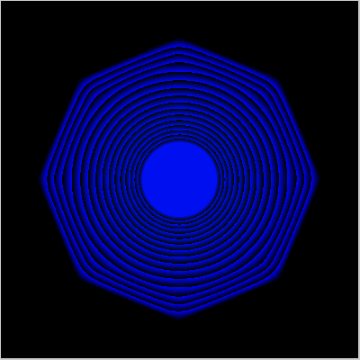The case involving “Quantum” is an example of how blockchain technology protects the rights of digital artists.
Canadian company Free Holdings will not get the chance to go to court over the first-known NFT on record.
That’s because Judge James Cott, a magistrate judge for the U.S. District Court, has dismissed the case. Indeed, the case was brought against the creator of “Quantum”, Kevin McCoy, and the auction house Sotheby’s, which sold the NFT for $1.47 million in June 2021.
In essence, Free Holdings believes that McCoy surrendered the ownership rights of the NFT by not following the correct procedure on the original blockchain Namecoin.
Moreover, Free Holdings takes issue with McCoy and Sotheby’s description of the NFT, which was used to sell the digital artwork.

However, Judge Cott wasn’t moved by the case presented by Free Holdings.
He said: “Free Holdings has demonstrated nothing more than an attempt to exploit open questions of ownership in the still-developing NFT field to lay claim to the profits of a legitimate artist.
A messy case
Free Holdings is the company which controls the blockchain Namecoin. Back in 2014, Kevin McCoy minted the first known NFT, “Quantum”, on Namecoin. Subsequently, McCoy failed to renew his ownership of the NFT within 250 days. Crucially, Namecoin rules state that if you don’t renew your ownership of the NFT, the NFT is no longer your property.
Following this, the NFT “Quantum” was minted on the Ethereum blockchain by McCoy, and sold by Sotheby’s auction house for $1.47 million.
Yet, Free Holdings takes issue with the description of the NFT by Sotheby’s, which uses phrases such as “genesis blocks”, “seismic forks” and “new movements” to sell the NFT.
The Sotheby’s description ends with: “These prime movers occupy a singular position in art history. They came first. Kevin McCoy’s Quantum is such a work. Minted on 2nd May 2014 21:27:34, or more precisely Namecoin Block 174923, the NFT era quietly dawned. What a noise it makes today.”
Additionally, Free Holding claims that the words in the description harm the company’s ability to profit from the NFT on Namecoin.
Artwrld is thrilled to present Land Sea and Sky, our upcoming collection with seminal digital media artists Jennifer & Kevin McCoy (@mccoyspace). This is their debut collaboration with an NFT platform following the sale of the first-ever NFT, minted by Kevin McCoy in 2014. pic.twitter.com/shJCuIRNez
— Artwrld (@artw__rld) March 7, 2023
A victory for the artist
Ultimately, Judge Cott wrote in his detailed summary that this was a case of two separate NFTs – one on Namecoin, one on Ethereum.
While Free Holdings has a case in the ownership of the NFT of Namecoin, it can’t claim ownership of the NFT “Quantum”, which was minted on Ethereum.
Furthermore, the judge states that Free Holdings doesn’t have a sufficient “proprietary interest” in the NFT itself.
In conclusion, according to Judge Cott, this is a case where someone is trying to exploit a digital artist for profit.
Moreover, it is an attempt to profit from a grey area in the issue of NFT ownership. Ultimately, Free Holdings didn’t present a strong enough case to take it to court.
Following an unsuccessful court case for digital artist Mason Rothschild against Hermès, this will feel like a win for the NFT community.
Author

Max is a distinguised author with a keen interest in Web3 technology.




